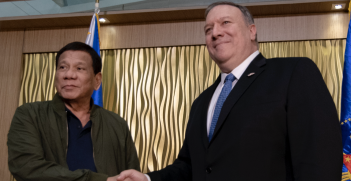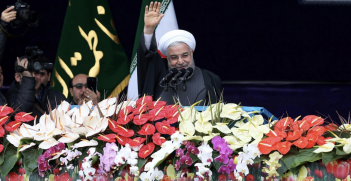How others see us
Australia is entering an era of powerful neighbours with competing interests. We need to understand how those countries view us and for what purpose they engage with Australia.
The shift of global economic weight to Asia is driving big changes in the Asian strategic and political order. That is transforming Australia’s international setting in all kinds of ways. Among other things, it drives big shifts in the way Australia is seen by our most important Asian neighbours. This shouldn’t come as a surprise to us, because relationships of all kinds change as power shifts between parties. But Australian foreign policy is still nonplussed by the fact that countries in Asia are starting to see and treat us differently.
Since the 1970s Australia has got used to a set of relations in Asia, and a set of Asian attitudes towards Australia, which were primarily shaped by economic opportunities. These still matter, of course, but less than before. Questions of strategy and politics matter much more than they did, as our Asian neighbours try to ride, or guide, the tides of geostrategic change that are flowing from economic growth. For as long as anyone can remember, Australia’s response to every geostrategic question in Asia has been: ‘We are a US ally’. This has worked well over the long decades in which America has been the uncontested primary power in our region. Now the US-led order is under pressure, our traditional response no longer answers all the questions. Our neighbours want to know more about how Australia sees the future of the region and our place in it. This has led to some of our recent and current problems. We can see this if we look at our big three relationships – China, Japan and Indonesia.
China
Start with China, which increasingly sees Australia in geostrategic as well as economic terms. Moreover its geostrategic perspective on Australia makes us distinctly uneasy. As China’s power grows it is more and more directly challenging US primacy in Asia. America’s response, so far, has been to try to resist China’s pressure and strengthen its strategic position in Asia. Among other things it has tried to bolster its alliances, seeking its allies’ increasing support against China. Beijing wants to forestall that, and puts pressure on US allies like Australia not to side with America against them. Australia is thus for the first time in many decades caught up in classic international power politics.
The consequences are simple but momentous: China now sees Australia not just as a source of imports, but as a chess-piece in its strategic competition with America. And this is, by its nature, a zero-sum game. A favour for Washington is a loss for Beijing and vice versa. That is why it is so foolish for Australian political leaders to keep saying ‘we don’t have to choose between America and China’. Try asking America and China if they agree. China’s new view of us as a geostrategic piece on the Asian chessboard, and America’s response, means that in their eyes we are making a choice between them every time we do anything with or for either of them. If we keep pretending that’s not happening, we will keep getting nasty surprises in Beijing, and in Washington.
Japan
Japan too now sees Australia more in geostrategic than in economic terms. It has its own escalating strategic rivalry with China, separate from America’s, about China’s and Japan’s roles in Asia in the Asian Century. It is, as we have seen, deep and bitter. As it has intensified over recent years, Japan has sought a closer strategic relationship with Australia, as it has done with other countries in Asia. Its purposes are perfectly clear. Japan sees Australia as a potential supporter and ally in its strategic rivalry with China, and of course China is very wary of that too. This explains why the Government’s blithe statements about Japan being Australia’s ‘strong ally’ and ‘best friend in Asia’ are so significant. The problem is that the Government seems not to see the significance, because it doesn’t recognise how Japan sees Australia in geostrategic terms.
Indonesia
Indonesia also sees Australia in ways we do not understand, but here – as one would expect between close neighbours – the issues are more bilateral. Australia’s image of the relationship has not changed much in a long time. They are big but poor and weak and quiescent, we are small but rich and strong and benevolent. We assume Indonesia sees it the same way. This is quite wrong. Indonesia’s view of Australia differs from our expectations in two crucial ways.
First, it does not see us as benevolent but as threatening. No one has said this more clearly than SBY himself speaking in the Australian Parliament a few years ago. We might think they are wrong, but if we do not take this view of us more seriously we will never get this relationship right.
Secondly, Indonesia is starting to feel its strength. Its economy has already overtaken ours, and its economic lead will grow quickly over coming years, as will its power. Indonesians no longer see themselves as weak and Australia as strong. This affects how they deal with us, and the fact that we don’t see the shift explains why Canberra has been surprised by Jakarta’s response to issues recently.
Hugh White is Professor of Strategic Studies at the Australian National University and a Fellow of the Australian Institute of International Affairs.





